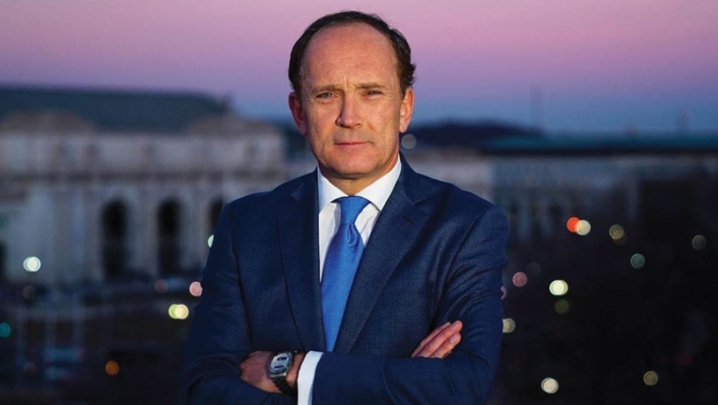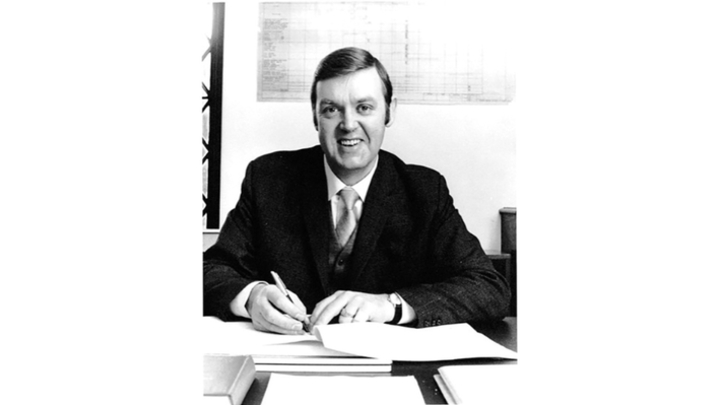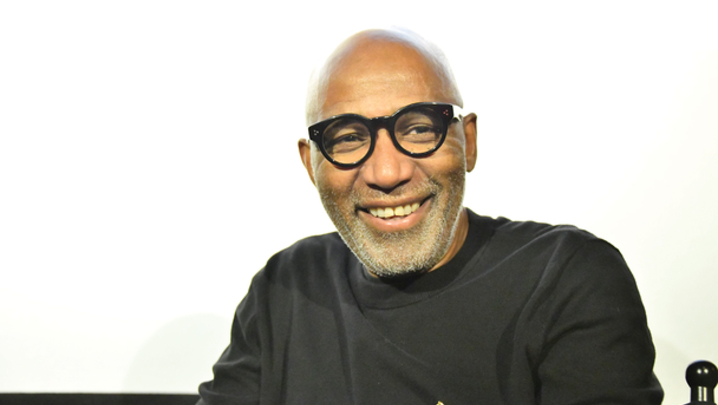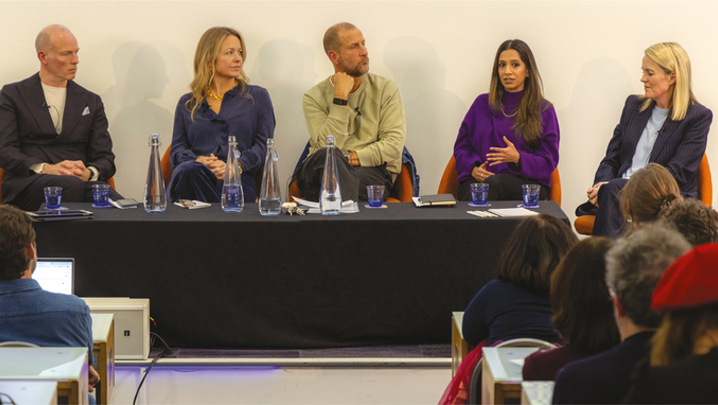With the emergence of Isis and ebola, TV news foreign correspondents are facing new threats to their lives, reports David Wastell.
The fear in the voices of the Kurdish peshmerga soldiers was unmistakable, as they shouted a warning to the BBC television crew taking cover with them in a shattered building in Jalawl?, 110km from Baghdad.
Not only were they under fire from outside, but now hostile fighters were entering the basement of the ruined house.
The terrifying minutes that followed made a gripping news dispatch and part of a Panorama film by reporter Paul Wood on the rise of Isis, the extreme jihadist force that has declared an "Islamic State" in a swathe of northern Syria and Iraq.
The encounter was particularly alarming because everyone knew what their fate would be if captured.
The peshmerga would have been swiftly executed; the television team – including camera operator and an accompanying medic – would have been held in a queue for beheading later, almost certainly on camera.
The attack fizzled out with the BBC team unharmed. But it illustrated the acute risks as broadcasters report some of the world's most dangerous stories.
The past 12 months have been especially demanding for television news organisations trying to ensure that their staff and freelancers do not join the annual litany of those killed on assignment.
Of the 103 on the 2014 list by mid-December, according to the International News Safety Institute, 17 died in Iraq and Syria – among them the Western journalists Steven Sotloff and James Foley, beheaded by Isis.
All-out civil war in Ukraine was followed by the sudden advance of Isis – and, at the same time, the alarming spread of an unfamiliar, deadly disease in west Africa.
As Tim Singleton, Director of News-gathering at ITV News, puts it: "With Ukraine, Syria and ebola all in one year, it has been a triple whammy."
"With Ukraine, Syria and ebola all in one year, it has been a triple whammy."
A week after Paul Wood's team came under attack, Sky News Special Correspondent Alex Crawford was driving to a remote corner of Sierra Leone, where an ebola outbreak was out of control.
She took with her a stack of protective equipment, originally stockpiled in case of a bird 'flu outbreak. "We didn't know what to expect," she says. "It sounded like the disease was being passed quite quickly, but it was easy to stop it with soap and running water."
 Television footage of her inside an isolation unit, sealed into white overalls and a respirator mask as she quizzed a nurse desperately sick with ebola, had such an impact that the country's own health minister used it to convince sceptics of the gravity of the crisis.
Television footage of her inside an isolation unit, sealed into white overalls and a respirator mask as she quizzed a nurse desperately sick with ebola, had such an impact that the country's own health minister used it to convince sceptics of the gravity of the crisis.
The unfamiliar nature of the virus has made it a particular challenge – "completely different" to any other crisis story in recent years, according to Stewart Purvis, former Editor-in-Chief of ITN.
It is unprecedented in its scale, in its impact and in the varying responses of medical authorities in three countries.
Early on, there was confusion over what precautions to take. "One has the feeling that there is no one set of rules," says Purvis.
Fears were heightened when a cameraman, hired locally by NBC, contracted the virus – exactly when or how was unclear. He was flown to the US amid strict biosecurity for treatment and survived.
Broadcasters have sought advice from medical aid agencies and from Public Health England throughout the crisis; and in November that organisation gave the first, large-scale briefing, at the BBC's headquarters, for all interested media.
But broadcasters' approaches have varied. Some, like ITV News, have simply kept staff well away from any ebola victims in the full-blown infectious stage.
They have, instead, attached waterproof GoPro cameras to medics working inside high-risk areas. Afterwards, the cameras are immersed in chlorine solution.
The BBC, whose first coverage of the outbreak came mainly from its network of local staff, now sends in teams around once a fortnight, says Andrew Roy, Foreign Editor at BBC News. Each team of four, including a biohazard expert, is trained beforehand. Even their tripods have protection: tennis balls, cut in half and placed under their feet to prevent contact with infectious material.
Reporters must stay two metres from ebola patients and further from highly infectious corpses. The broadcaster also uses GoPro cameras.
Alarm about the possible spread of ebola by teams returning home at first led to some being urged to stay off work for 21 days – the virus's maximum incubation period.
Now there is confidence that ebola becomes infectious only well after a victim develops a fever, the rule has been relaxed.
However, returning staff must all be regularly monitored, says Roy, and are advised to be careful: "You don't want to catch a cold. If you get a temperature, you will have to report to Public Health England."
Those returning have not been universally welcomed. After Alex Thomson of Channel 4 News flew home from Sierra Leone in November he found himself disinvited from co-presenting the Rory Peck Awards for freelance journalists, in case winners did not feel comfortable shaking his hand.
[Ebola] is a controllable risk. It’s quite unlike… Isis
But for all that, the consensus now is that the dangers of covering ebola are manageable compared with close-up reporting of Isis.
"It's a controllable risk," says Dan Williams, Sky's Head of International News. "It's quite unlike the risk of a mortar round landing near you, or a fixer turning bad – or of just turning a corner and discovering Isis approaching."
Reporting in a war zone always involves some luck, no matter how careful the risk assessment – "like writing a book" is how one BBC insider describes the process.
Now the determination of Isis to use journalists as hostages has forced Western broadcasters to curtail almost completely their own reporting from within rebel-held Syria.
Instead, they have to cover it from afar: via officially sanctioned trips to Damascus, or from the Kurdish side in northern Iraq, or via social media and Skype – with only rare and rapid forays across the Turkish border.
During one of them, the BBC had to abandon filming after half an hour because it had received a "credible" kidnap threat.
The one notable exception has been the extraordinary Vice News documentary filmed by Medyan Dairieh, a British-based journalist of Palestinian heritage, who spent three weeks "embedded" with Isis in Raqqa, the Islamic State's "capital" in northern Syria. It has had more than 14 million views online, many in the US, since August and has won widespread praise.
Some critics among mainstream broadcasters point out that the 42-minute film is largely unquestioning of Dairieh's hosts, does not spell out the restrictions upon him (he was accompanied by armed Isis members 24 hours a day), and is not constrained by the impartiality and balance requirements imposed on mainstream British broadcasters.
But Kevin Sutcliffe, Vice News's Head of News Programming, who previously ran Channel 4's Dispatches, says: "That's nonsense. It's a piece of chilling documentary in which the material completely speaks for itself. Nobody comes away from watching it other than utterly chilled and terrified."
It took months of negotiation to secure safe access and to be sure of getting Dairieh and his film back out, he said.
Vice's success poses a dilemma to other broadcasters. For the BBC, Roy doubts he would ever agree to an embed with the jihadist group. "I'm not certain that I would trust Isis, so I don't think it would even get past that stage. The fundamental issue is that we would not trust them, or take the risk."
This means that, for broadcasters, at least for now, there is no safe way to enter rebel-held Syria, making the Isis story even more toxic to report than ebola. Sky's Alex Crawford effectively summed it up: "Although the virus is unseen, scary and very deadly for the local community, I felt the risks were not nearly so high for me.
"It's nothing like going into Syria. Right now, that is crazy, off-the-scale dangerous."
David Wastell is a former Foreign Editor of the Telegraph.







